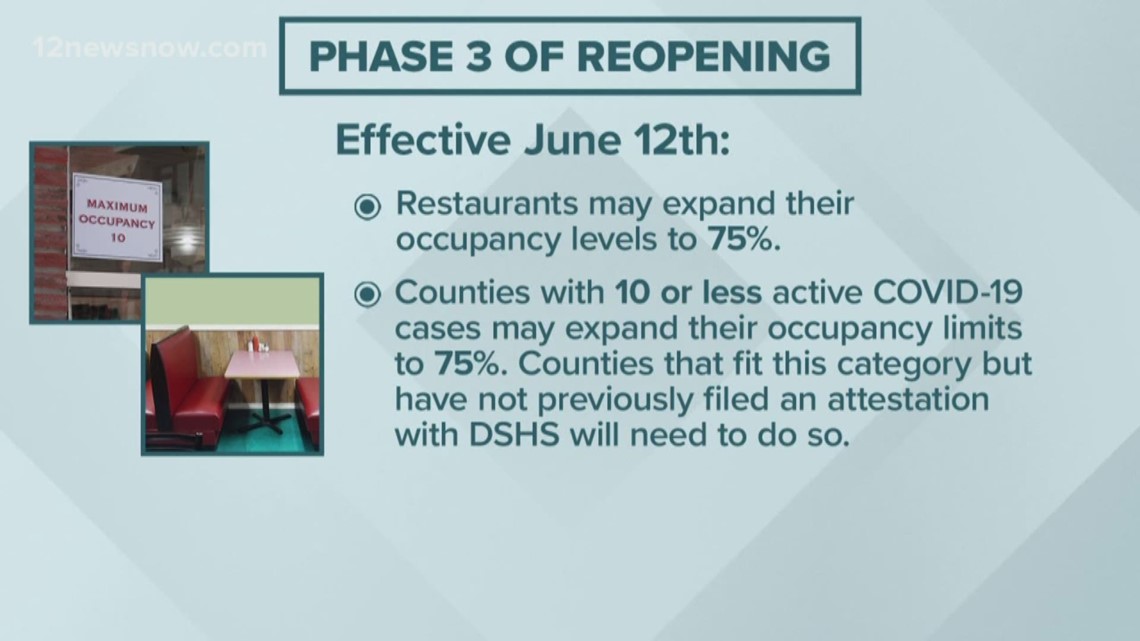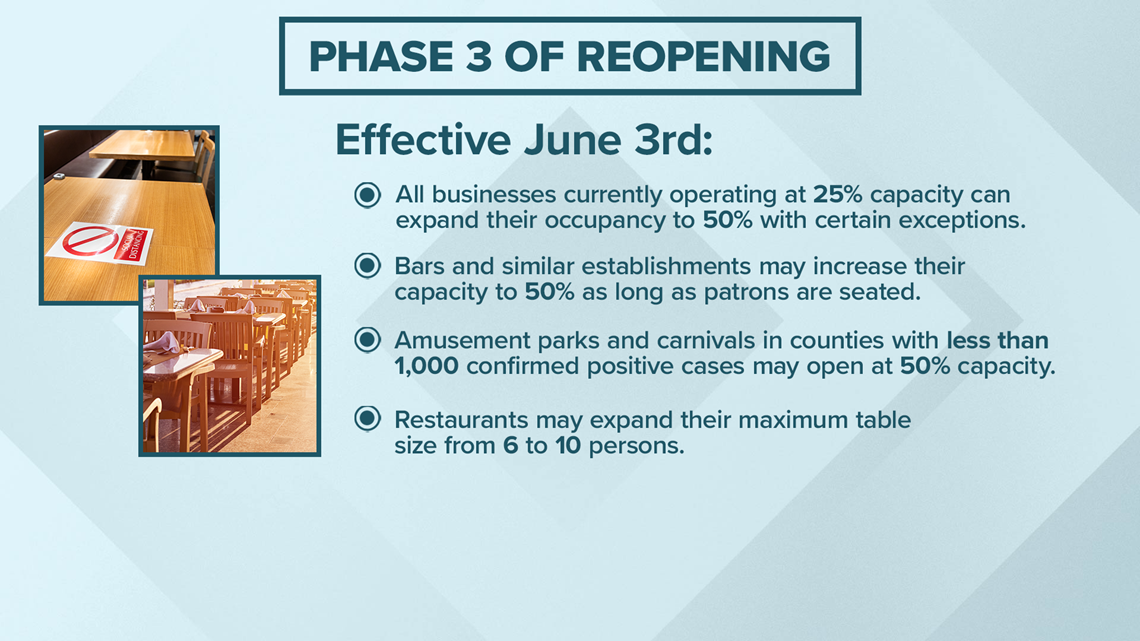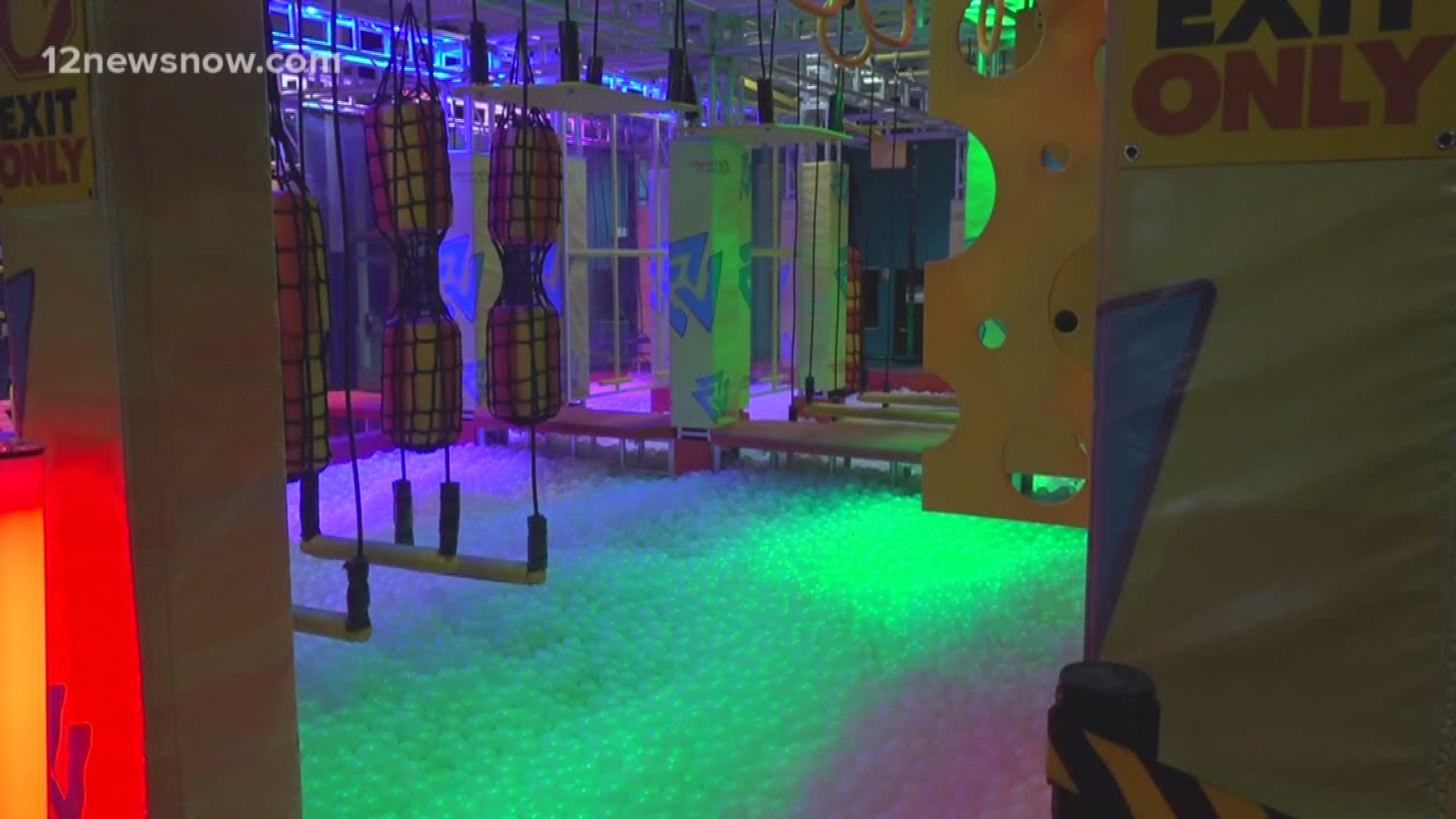BEAUMONT, Texas — Phase III of reopening Texas is underway as restaurants and businesses increase capacity while entertainment venues in areas with less than 1,000 coronavirus cases prepare to open.
But it won't be business as usual when these facilities open their doors for the first time since closing down in March.
Many venues have updated safety protocols and have increased sanitation stations before allowing families inside.
Urban Air Adventure Park plans to open their doors to the public on Saturday. They are preparing for what they call a new normal -- where visitors and staff will have to do things a little differently.
"We want to create a safe and clean environment," Urban Air Adventure Park marketing and sales manager Michael Calloway said. "We're monitoring our own staff members, making sure they're safe and healthy before we welcome our guests into the park as well."
All staff will have their temperature checked prior to entering the building, and that goes for all guests as well.
RELATED: Gov. Abbott announces Phase 3 of Texas reopening; capacity limit expanded to 50% for most businesses


"I do feel confident that we will be able to provide the same safe environment for our guests," Calloway said.
Urban Air says they are even embracing the new way of operating with staff members doing what they call a cleaning party every hour.
"The entire staff will be wiping down attractions. Cleaning doesn't have to be boring, it can be fun too," Calloway said.
Along with employees wearing masks, social distancing markers on the ground will help people follow guidelines to various attractions.
For now, customers must make reservations to Urban Air and many other indoor entertainment venues. Companies say this will help them adhere to the capacity limits set by the state.
"We've missed everybody, sincerely missed everybody. We really can't wait to open our parks back up, we're so excited," Calloway said.


Starting June 12, restaurants in Texas may increase their capacity to 75%. The state began reopening businesses and restaurants in phases since May 1.
The Texas stay home order expired April 30. Texas was one of the first states in the country to reopen after shutting down in March due to the coronavirus pandemic.
Texas has seen an increase in COVID-19 cases and hospitalizations since Memorial Day. In Southeast Texas, cases and hospitalizations continue to rise.
Coronavirus symptoms
The symptoms of coronavirus can be similar to the flu or a bad cold. Symptoms include a fever, cough and shortness of breath, according to the Centers for Disease Control.
Most healthy people will have mild symptoms. A study of more than 72,000 patients by the Centers for Disease Control in China showed 80 percent of the cases there were mild.
But infections can cause pneumonia, severe acute respiratory syndrome, kidney failure and even death, according to the World Health Organization. Older people with underlying health conditions are most at risk.
The CDC believes symptoms may appear anywhere from two to 14 days after being exposed.
RELATED: VERIFY: No, members of Congress who are self-quarantined for coronavirus cannot vote remotely
Human coronaviruses are usually spread through...
- The air by coughing or sneezing
- Close personal contact, such as touching or shaking hands
- Touching an object or surface with the virus on it, then touching your mouth, nose or eyes before washing your hands.
Help stop the spread of coronavirus
- Stay home when you are sick.
- Eat and sleep separately from your family members
- Use different utensils and dishes
- Cover your cough or sneeze with your arm, not your hand.
- If you use a tissue, throw it in the trash
Lower your risk
- Wash your hands often with soap and water for at least 20 seconds. If soap and water are not available, use an alcohol-based hand sanitizer.
- Avoid touching your eyes, nose, and mouth with unwashed hands.
- Avoid close contact with people who are sick.
- Clean and disinfect frequently touched objects and surfaces.
- If you are 60 or over and have an underlying health condition such as cardiovascular disease, diabetes or respiratory illnesses like asthma or COPD, the World Health Organization advises you to try to avoid crowds or places where you might interact with people who are sick.

